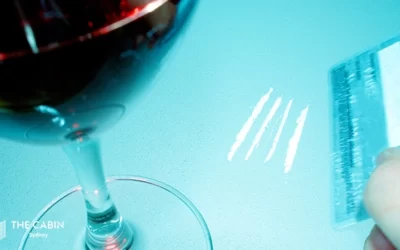Living with a disregulated nervous system often means coping with increased stress, cognitive impairment, and sleep issues. A poorly functioning nervous system can also cause serious physical and mental problems.
But you do not have to continue living this way. It is possible to heal a disregulated nervous system, effectively curing the symptoms you have been facing. According to the World Health Organization, anxiety disorders related to a disregulated nervous system affect more than 250 million people globally so this is a serious disorder that impacts many in the population.
In this blog, we look at what causes nervous system dysregulation and present you with all the solutions you need to heal.

What Causes A Disregulated Nervous System?
There are many causes of nervous system dysregulation. Often, several contributing factors result in this condition. Healing means identifying and addressing each of these.
These causes can become intertwined, and someone with trauma or chronic stress may use substances to escape from how they feel. If you have co-occurring factors that cause your dysregulation, healing from them simultaneously is often the most effective approach.
Trauma
Trauma is the most common cause of nervous system dysregulation. It is more common to face problems with your nervous system if you encountered trauma as a child, but it is also possible to become disregulated by traumatic events that happened to you as an adult.
Sexual and domestic abuse, being victim to or witnessing acts of violence, neglect, natural disasters, medical trauma and bereavement can also create trauma. These happenings may also cause you to develop Post Traumatic Stress Disorder.
The often profoundly unpleasant symptoms of PTSD can contribute to the condition of your nervous system worsening as your nervous system becomes increasingly overwhelmed.
Medical Conditions
Chronic medical conditions, such as diabetes, multiple sclerosis, or autoimmune disease, can affect the nervous system and contribute to dysregulation. These conditions may both cause dysregulation and be caused by dysregulation, as physical health requires a healthy nervous system.
Chronic Stress
Stress caused by financial obligations, overwork, and family commitments can all cause problems with your nervous system over time. You may also suffer from internal strains caused by negative self-talk, perfectionism, self-doubt, guilt, shame and imposter syndrome.
Substance Abuse
Drugs and alcohol disrupt the natural balance of the body, causing disarray in the nervous system. The longer you use substances, and the more of them you use, the worse dysregulation you are likely to experience.
If you have substance abuse problems, quitting drugs and alcohol is the most immediately beneficial action you can take to heal your disregulated nervous system.
Think
you may have
an addiction?
Healing Nervous System Disregulation
We use several tools at The Cabin to effectively heal a disregulated nervous system. These treatment approaches can be used alone, though some people find that a combination of these methodologies is most effective in healing their nervous system.
Cognitive Behavioral Therapy
Cognitive Behavioral Therapy works by changing your thoughts about a situation, which in turn influences your behaviours and situation outcomes. For example, you may have the belief that you need to succeed in life for people to love you. This leads you to work all the time, causing nervous system dysregulation and burnout.

Therapists can help you to challenge these dysfunctional beliefs. Doing this allows the person to decrease the amount they work, which will, in turn, help to heal their disregulated nervous system.
The therapist will work with the client to challenge the unhelpful patterns of thinking and behaviour, and help the client to create new, more helpful ways of thinking and behaving.
Tension, Stress and Trauma Release
Tension, Stress and Trauma Release (TRE) is a system designed to unlock the psoas, a muscle that stores much of the trauma in the body. This trauma can cause nervous system dysregulation.
TRE sessions are guided by a trained TRE facilitator, who guides participants through a series of positions that stress the psoas. These positions often cause the psoas to begin shaking, releasing body trauma.
Eye Movement Desensitization and Reprocessing (EMDR)
When someone suffers a traumatic event, it can become trapped in the body, leading the body to feel that the event is continuing to happen. This puts tremendous stress on the nervous system, and can cause hypervigilance, or lead the body to shut down.
EMDR allows trauma sufferers to change their relationship to the trauma they experienced, so it becomes less TROUBLING to them.
Introduce Safety
It is challenging to heal in an environment that causes you to be sick. The nervous tends to stay activated until you feel out of danger.
Being at ease and feeling safe is a crucial component of healing a disregulated nervous system. Besides benefiting from some of the tools outlined in this blog, it is essential to be in an environment where you do not feel threatened.
This is one of the reasons why it can be so beneficial to attend a centre away from home when you are healing from addiction, trauma or mental health problems. Getting away from the stresses and triggers of home can greatly accelerate the healing process.
At The Cabin, we understand the importance of feeling safe. The Cabin Chiang Mai our residential rehab centre in Chiang Mai, Thailand, offers clients a tranquil experience where they will feel at ease, facilitating the restoration process.
Reduce Stress
Not all stress is unhealthy, and there are certain times when a little stress can provide us with the focus we need to function effectively. But when stress becomes chronic and overwhelming, it has a severely negative impact on our nervous system.
Stress can come from many directions:
- Work pressure and deadlines
- Financial strain
- Relationship conflicts
- Chronic health issues
- Traumatic events
- Lack of sleep
- Major life changes
(e.g., relocation, divorce) - Academic challenges
- Environmental factors
(e.g., noise, pollution) - Uncertainty about the future
Eliminating some of these stresses from your life plays an integral part in healing a disregulated nervous system.
Of course, it is not always possible for you to remove challenges from your life. Most people need to work to earn money, and stressful life changes sometimes occur without our control. And while we sometimes cannot control what happens in our lives, we can control our reaction to it.
This is where cognitive behavioural therapy can be really helpful. Changing your reactions to stressful events will cause your perceived level of stress to decrease, which will, in turn, allow nervous system rejuvenation.
How Long Does it Take To Heal A Disregulated Nervous System?
In our always-on culture of instant gratification, plenty of quick fixes promise to solve your nervous system problems in a flash. People who want to heal their disregulated nervous system often try medication to reestablish equilibrium.
This approach rarely works. The medication may mask some of the side effects you are experiencing, but it cannot bring you back to true wellness.
At The Cabin, we find that it usually takes around at least a month for treatment to feel calmer and respond differently to triggers. As treatment continues, you will begin to experience a fuller and more long-lasting relief from your diregulated nervous system symptoms.
How Does The Residential Programme Work
 Our residential programme at The Cabin Chiang Mai provides a foundation of regular sleep, exercise, a nutritious diet and a positive client community that works together to facilitate deep healing. On top of this, the programme provides group and individual therapy, art therapy, personalized holistic treatment (including yoga, mindfulness meditation, sound healing and reiki), traditional Thai massage, personalized fitness trainers, and individual and individual & group therapy. This combination of treatment modalities can heal a diregulated nervous system and provide lasting treatment.
Our residential programme at The Cabin Chiang Mai provides a foundation of regular sleep, exercise, a nutritious diet and a positive client community that works together to facilitate deep healing. On top of this, the programme provides group and individual therapy, art therapy, personalized holistic treatment (including yoga, mindfulness meditation, sound healing and reiki), traditional Thai massage, personalized fitness trainers, and individual and individual & group therapy. This combination of treatment modalities can heal a diregulated nervous system and provide lasting treatment.
If you have deeper issues like trauma, it can take a while for your nervous system to fully recover. But it is always a worthwhile journey.
Do You Need Nervous System Support?
Living with a disregulated nervous system can be exhausting. You may have tried healing modalities in the past and found them ultimately not effective. The truth is that healing your nervous system takes time, dedication, and the support of professionals who have plenty of experience working with the nervous system.
The Cabin offers two options for those looking for healing. An outpatient treatment centre here in The Cabin Sydney and The Cabin Chiang Mai.
In Sydney, we can offer you counselling sessions on an outpatient basis. These can help you address any trauma or substance abuse problems that are contributing to your disregulated nervous system.

At our centre in Chiang Mai, we support those who have severe dysregulation to recover from their nervous system conditions by providing a safe space that offers profound healing and serenity. We utilize various nervous system healing approaches, including TRE, EMDR and CBT.
For more information on any of the modalities we have discussed in this blog, or to arrange a consultation on how we can support your recovery from nervous system dysregulation, contact us today at +66 20 385 469.
Suffering from nervous system dysregulation?
We are Here to Help You Start Your Journey to Recovery


